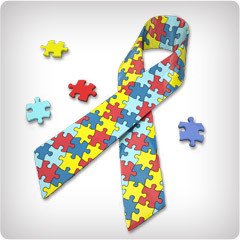 by Jonel M. Condra, SLP
by Jonel M. Condra, SLP
Speech Pathologist
Today is World Autism Awareness Day (April 2). This day was established on December 18, 2007, when the United Nations General Assembly adopted resolution 62/139, declaring April 2 as World Autism Awareness Day (WAAD) in perpetuity. This UN resolution established WAAD as one of only three official disease-specific United Nations Days, with the goal of bringing the world’s attention to autism, a pervasive disorder that affects tens of millions.
World Autism Awareness Day shines a bright light on autism as a growing global health concern. WAAD activities help to increase and develop world knowledge of autism and impart information regarding the importance of early diagnosis and early intervention. Additionally, WAAD celebrates the unique talents and skills of people with autism, and features community events around the world where individuals with autism and their families are warmly welcomed and embraced.
About Autism
Autism is a complex neurobiological disorder that inhibits a person’s ability to communicate and develop social relationships, and is often accompanied by behavioral challenges. Autism spectrum disorders are diagnosed in 1 out of 88 children in the United States, affecting four times as many boys as girls. Living in Utah means your baby boy will have a 1 in 32 chance of having an autism spectrum disorder, the highest risk in the nation. The prevalence of autism has increased dramatically in the last few years. The Centers for Disease Control and Prevention have called autism a national public health crisis whose cause and cure remain unknown. (Source: www.autismspeaks.org.)
Signs and Symptoms
Signs of autism are usually recognizable by 2 or 3 years of age. But because symptoms are sometimes hard to notice, it can take longer to fully identify autism. The American Academy of Pediatrics (AAP) recommends that pediatricians look for signs that suggest the possibility of autism at every visit. Formal autism screening can begin as early as 16 months of age.
Signs of autism can include:
- trouble interacting, playing with, or relating to others
- having little or brief eye contact with others
- not pointing to objects to call attention to them
- unusual or repetitive movements, such as hand flapping, spinning, or tapping
- delays in developmental milestones or loss of milestones already achieved
- playing with a toy in a way that seems odd or repetitive
- not using or understanding language as a child that age typically would
- not exploring surroundings with curiosity or interest (a child seeming to be in his or her “own world”)
Kids who show a pattern of these behaviors should be evaluated by a doctor with expertise in developmental disorders, such as a developmental pediatrician, pediatric neurologist, pediatric psychologist, or psychiatrist.
To diagnose autism, doctors might use parent questionnaires or have a child evaluated by a psychologist to test abilities and behaviors when it comes to things like learning, communication, and play. While brain scans are rarely needed, they can be used to help rule out other conditions.
Treatment
Although there’s no cure for autism, early intervention and therapy can help kids develop skills and achieve their best potential. Therapy is tailored to each child’s individual needs and may include behavioral, educational, speech, and occupational therapies.
Primary Children’s and Intermountain Healthcare are committed to helping families with autism. Our outpatient pediatric rehabilitation facilities have developed a protocol for assessing children with autism and providing information for families on community services. If you have any questions regarding autism services especially as related to speech and occupational therapy services, please contact one of our centers listed below for more information:
Primary Children’s Rehab Sandy: (801) 571-3081
Primary Children’s Rehab Bountiful: (801) 292-8665
Primary Children’s Rehab Taylorsville: (801) 840-4360
Primary Children’s Rehab Ogden: (801) 387-2080
Intermountain Rehabilitation-Orem Community Hospital: (801) 714-3505
Cache Kids Pediatric Rehabilitation in Logan: (435) 716-6440
Dixie Regional Pediatric Rehabilitation in St George: (435) 252-2250
[...] Visit link: Understanding Autism | Play Ground | The Blog of Primary … [...]
Jonel, this is a great article for parents. Thanks, Michelle